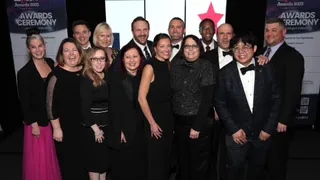
Marlon Trottmann / Shutterstock.com
9 March 2023Big PharmaMuireann Bolger
Don’t distort enablement law, Amgen tells SCOTUS
Sanofi and Regeneron accused of wanting to change patent system | The US Supreme Court will decide whether a controversial court decision should stand.
Already registered?
Login to your account
If you don't have a login or your access has expired, you will need to purchase a subscription to gain access to this article, including all our online content.
For more information on individual annual subscriptions for full paid access and corporate subscription options please contact us.
To request a FREE 2-week trial subscription, please signup.
NOTE - this can take up to 48hrs to be approved.
For multi-user price options, or to check if your company has an existing subscription that we can add you to for FREE, please email Adrian Tapping at atapping@newtonmedia.co.uk
Big Pharma
20 April 2023 Court affirms decision that two Otezla patents are not invalid | Apremilast generics set for 2028 release.
Americas
28 March 2023 As the US Supreme Court probed the key issue of enablement in Amgen v Sanofi, patent lawyers shared their views on the much-anticipated hearings.
Big Pharma
7 February 2023 French pharma firm urges US court not to allow ‘monopoly’ over market | Enablement issue at centre of antibody patent case could have wide implications for pharma and life sciences industries.
Editor's picks
Editor's picks
Big Pharma
20 April 2023 Court affirms decision that two Otezla patents are not invalid | Apremilast generics set for 2028 release.
Americas
28 March 2023 As the US Supreme Court probed the key issue of enablement in Amgen v Sanofi, patent lawyers shared their views on the much-anticipated hearings.
Big Pharma
7 February 2023 French pharma firm urges US court not to allow ‘monopoly’ over market | Enablement issue at centre of antibody patent case could have wide implications for pharma and life sciences industries.
Big Pharma
20 April 2023 Court affirms decision that two Otezla patents are not invalid | Apremilast generics set for 2028 release.
Americas
28 March 2023 As the US Supreme Court probed the key issue of enablement in Amgen v Sanofi, patent lawyers shared their views on the much-anticipated hearings.
Big Pharma
7 February 2023 French pharma firm urges US court not to allow ‘monopoly’ over market | Enablement issue at centre of antibody patent case could have wide implications for pharma and life sciences industries.

